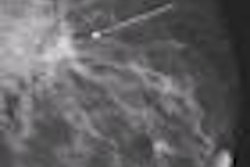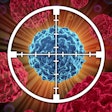Dear Radiation Oncology Insider,
From a radiation oncology perspective, November and December are the busiest times of the year, with the annual meetings of the American Society for Radiation Oncology (ASTRO) and the RSNA, along with the just concluded San Antonio Breast Cancer Symposium. So once again, this year-end edition of the Radiation Oncology Insider is packed with important news.
New treatments for breast cancer patients dominated all three conferences. This edition's Insider Exclusive reports on outcomes for patients enrolled in accelerated partial-breast irradiation (APBI) clinical trials presented at ASTRO and last week in San Antonio -- click here to read the latest updates. Also check out a report that rocked ASTRO: Hypofractionated whole-breast irradiation can reduce conventional treatment time by almost half. Learn more about Beth Israel Medical Center's research by clicking here.
Because breast motion and changes in lumpectomy cavities are daily challenges, two other articles from our Radiation Oncology Digital Community merit special attention. Contributing editor Paula Gould of Medicalphysicsweb.com reports on the use of optical sensor tracking. And in spite of radiation dose, two CT simulation studies are better than one. Click here to find out why.
Radiation therapy may be the best new treatment for high-risk melanoma patients. Read about a study heralded at ASTRO as the first real advancement in the management of melanoma. Inoperable patients with early stage non-small cell lung cancer will welcome news about stereotactic body radiation therapy; we think you'll be encouraged by the results of this Radiation Therapy Oncology Group clinical trial.
For our U.S. readers, the best news is that cancer rates are dropping. We fervently hope that similar statistics will be announced throughout the world.
With that, happy holidays to all!


















